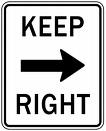Well, the South Carolina debate sure was a hoot, wasn’t it? I just love cat fights. But before the real fun began, Mrs. Clinton laid out her “economic action plan,” which consisted of the following six points.
- “I would have a moratorium on foreclosures for 90 days…”
- “I want to have an interest rate freeze for 5 years…”
- “Then I think we need to give people about $650, if they qualify, to help pay their energy bills this winter….”
- “I want to put money into clean energy jobs, green collar jobs,”
- “and also make sure we have a fund that will help communities deal with the consequences of the home foreclosure crisis,”
- “and make sure the unemployment system is up to the task.”
Sounds like she’s really thought this through, doesn’t it? But, let’s take a little closer look.
What good will a 90 day moratorium on foreclosures really do? How many of the people who are unable to pay their mortgages today will suddenly get a huge promotion, a new job, or win the lottery within the next three months? Realistically, if their house is about to be foreclosed, delaying it for 90 days is not going to keep them from losing it. What it will do is give them 90 days free rent, where they can stop paying their bills because they know they’re going to lose the house anyway. And, during those 90 days, the house is no longer an “investment” for them, so they have no particular motivation to keep it up. In fact, many people in this situation feel a certain resentment toward the financial institution that’s “kicking them out of their home,” and some may even take it out on the property to get back at the villains who are “doing this to them.” I don’t see how this will help either the economy or the people who can’t pay their debts (beyond giving them 3 months free rent at the expense of the lenders).
And how will a five year interest freeze ultimately help the people who irresponsibly overextended their credit on homes they couldn’t afford? What happens when the freeze is lifted? Are we expected to anticipate that people who had to get sub-prime loans because they had bad credit to begin with will become any more financially savvy or fiscally responsible after having been bailed out for five years? What happens in five years when their interest rates jump up? They’ll be back in the same situation they’re in now. A problem deferred is not a problem solved.
And how exactly will this fund “help communities deal with the consequences of the home foreclosure crisis?” And who’s going to pay for it? We, the taxpayers, of course. The people who manage our finances responsibly will once again be asked to pony up for those who didn’t. No, not asked — the money we earned and saved and managed wisely will be taken out of our pockets to bail out the ones who figured they might as well risk it all because, if worse came to worst, the good old Fed would surely come to their rescue. The fiscally conservative individuals who decided the risk wasn’t worth taking are the ones who’ll get stuck paying the cost of the risks that others took.
Remember the story of the grasshopper and the ant? Well, the ants are tired of storing up food all year only to feed the grasshoppers when the grasshopper party is over. Grasshoppers, get a clue! The ants are fed up. Sometimes I think, instead of a donkey and an elephant, the party symbols ought to be a grasshopper and an ant. 









